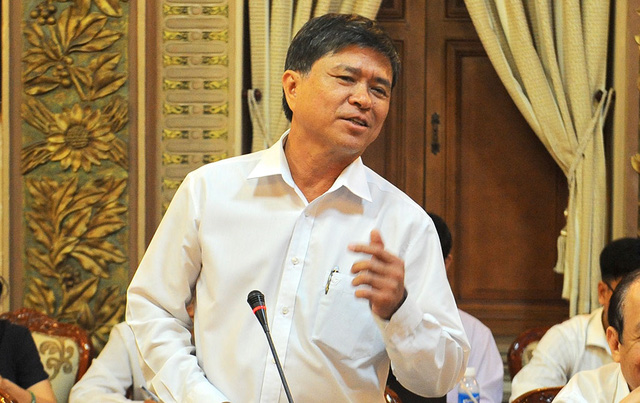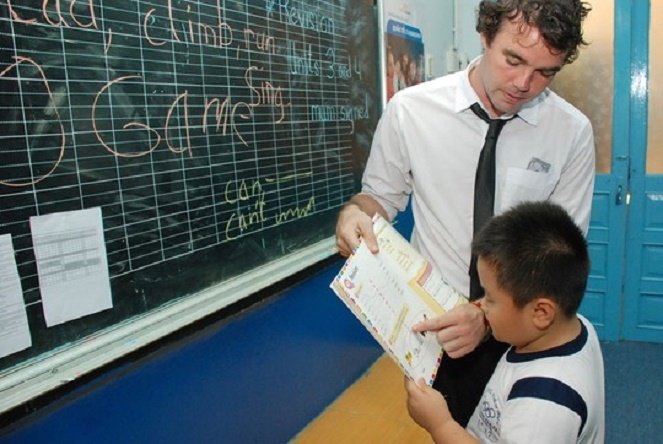A ban on the practice of giving primary school students Western names during English classes has long been established because it “does no good for traditional education,” a deputy head of the Ho Chi Minh City education department has claimed.
The ‘no English name’ rule and a ban on the use of audiovisual tools have both been stipulated in the department’s guidelines for English teaching by native teachers in Ho Chi Minh City primary schools for the 2017-18 academic year.
As the guidelines have caused quite a debate among local and native English teachers, as well as parents, Nguyen Van Hieu, deputy director of the Ho Chi Minh City education department, officially addressed the issue at a press conference on Monday.
Hieu said the rule actually took effect around five years ago, adding that it was not the department’s idea, but one stemming from complaints made by parents themselves.
“Parents complained that their children had been given English names and that they were so proud of the new names that they would ask to be addressed by these names at home,” Hieu elaborated.
“In the education department’s view, this is not good for [our] traditional education.”
While it is acknowledged that English is essential for integration, Hieu asserted that “we have to maintain traditions.”
“Our name is given to us by our parents so we have to take pride in it, not foreign names like Peter or Mary,” he added.
 |
| Nguyen Van Hieu, deputy director of the Ho Chi Minh City education department, speaks during a press conference on September 25, 2017. Photo: Tuoi Tre |
Several native English teachers have told Tuoi Tre News that they prefer to call local students by English names for the sake of convenience.
Vietnamese names are not easy to pronounce, and it is almost impossible to remember all the local names if one English-speaking teacher is in charge of two or more classes at a time.
However, Hieu said that even when native English teachers address their students with Western names, they are still required to use the official student lists to complete evaluation tasks.
“They cannot just create their own student lists using English names to keep account of student scores,” Hieu explained.
“It’s impossible to remember every student, even by their English names, if you have to teach different classes.”
The department leader also told reporters that it is essential to release guidelines as more and more local primary schools are hiring native English teachers, so “it must be regulated.”
The guidelines,
applied in primary schools throughout the city, include a ban on using audiovisual aids while teaching.
They add that native English teachers should call their students by their Vietnamese names and under no circumstance address them by Western names.
It is also dictated that English-speaking teachers refrain from using audiovisual tools including cassette players, CD players, and smart boards to play music or videos for students during their lessons.
Instead, teachers are expected to create conditions for students to practice English through social interaction.
Like us on Facebook or follow us on Twitter to get the latest news about Vietnam!


















































